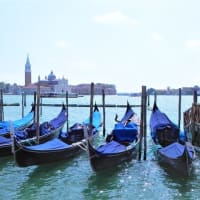Nippon Steel is attempting to acquire US Steel.
Perhaps the fact that both companies incorporate their respective country names in their corporate identities exacerbates nationalism unnecessarily.
This is where the difficulties of globalization lie.
Nippon Steel announced its intention to acquire US Steel for approximately 2 trillion yen.
In response, former President Trump expressed opposition to the acquisition. Furthermore, the United Steelworkers (USW), which had opposed the acquisition, announced gaining President Biden's support against it.
Nippon Steel's acquisition of US Steel appears to be quite challenging.
In such a situation, it might be safer to withdraw from the acquisition, even if it means paying a penalty.
Looking back, the company I once worked for also faced significant challenges after acquiring an American steel company.
Japanese people have a fondness for America and often underestimate the repercussions of antagonizing it.
Despite such complexities, America, to me, is like a second homeland—a nation that provided me with an excellent degrees and the fundamentals of international business.
Allow me to share some of my past experiences.
During my high school years in the midst of the Showa era, I aimed for a science-related education. However, after various twists and turns, I ended up entering the College of Law of Chuo University.
University entrance exams yielded unexpected results despite diligent efforts. I refocused during university to prepare for employment and the Bar Examination, maintaining the same pace as during my high school days.
Although I did not pass the Bar Examination during my college days, I received numerous job offers.
Ultimately, I decided to join one of two steel companies. At that time, Japanese steel companies were among the world's top-tier corporations, with towering skyscrapers near the Imperial Palace in Tokyo serving as their headquarters.
Due to my background from a private university, I declined offers from companies famous for their connections to the University of Tokyo and joined JFE Steel (formerly known as Nippon Kokan) instead. However, JFE Steel, like many others, had ties to former imperial universities, so there wasn't much of a difference.
Yet, JFE Steel was a good company for me. I delivered the speech as a new employee representative at the entrance ceremony.
After four years of working in the factory's accounting department, I spent two years studying abroad in the United States from my fifth year onwards.
I inquired about whether I had to return home after earning a Master of Laws degree from Cornell Law School in my first year, and I was told, "You are free to do as you please during the two-year study period." Consequently, I was able to obtain a Master of Laws degree from New York University Law School in my second year.
JFE Steel was truly a generous and excellent company.
In retrospect, since we were attempting to acquire an American steelmaker, "American personnel" were likely needed.
Domestic demand for steel had plateaued, and overseas reliance, particularly in America, faced a storm of import restrictions due to trade laws such as "anti-dumping" measures.
The acquisition of National Steel was a desperate measure to overcome such circumstances. However, the economically irrational M&A of acquiring declining American steelmakers ended in failure.
During that time, most M&A activities by Japanese companies in America ended in failure. Ultimately, Japan was merely flattered by America, being utilized for the reconstruction of the American economy.
America is indeed a wise country.
National Steel, which had long struggled with poor performance, was left with only "negative legacies." Funds were extracted to rebuild National Steel, despite having no connections or relevance.
If there was any retaliation, it would be that the "relisting" of National Steel on the New York Stock Exchange was successful, allowing for "listing gains" to be achieved.
I participated in this "relisting project" and gained invaluable experience negotiating and conducting ceremonies at the New York Stock Exchange.
M&A is a speedy and convenient method of acquiring the target company as it is. If successful, the acquirer's business can be rapidly expanded. However, if it fails, it threatens the survival of the acquiring company—a double-edged sword.
That is the essence of M&A, but it is a business where one can easily get burned or even fatally wounded by taking risks too lightly.
Over forty years later, Nippon Steel is attempting to acquire US Steel.
The fact that both companies incorporate their respective country names in their corporate identities may unnecessarily fuel nationalism.
This is where the challenges of internationalization lie.




















